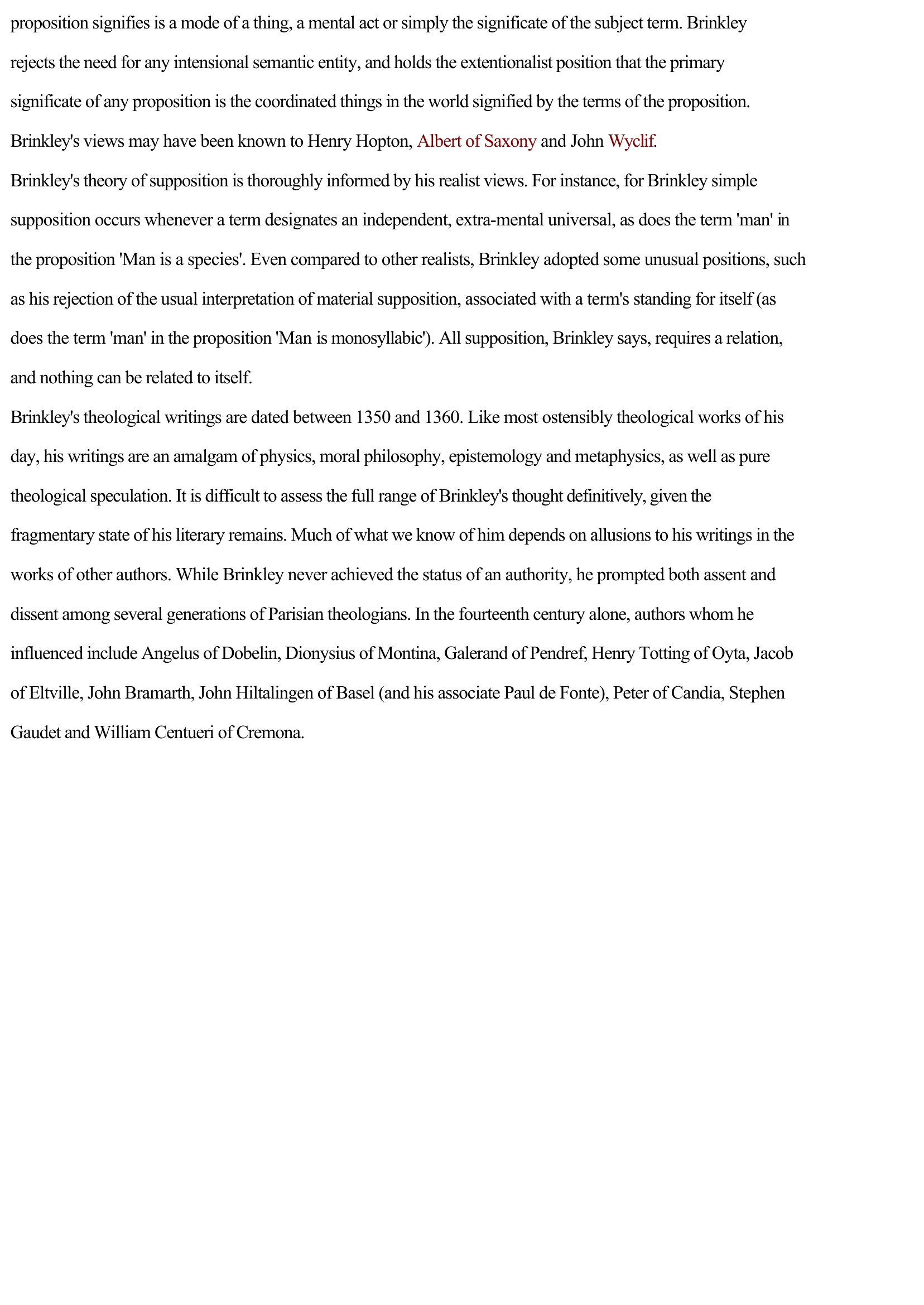Brinkley, Richard
Publié le 22/02/2012

Extrait du document
«
proposition signifies is a mode of a thing, a mental act or simply the significate of the subject term.
Brinkley
rejects the need for any intensional semantic entity, and holds the extentionalist position that the primary
significate of any proposition is the coordinated things in the world signified by the terms of the proposition.
Brinkley's views may have been known to Henry Hopton, Albert of Saxony and John Wyclif .
Brinkley's theory of supposition is thoroughly informed by his realist views.
For instance, for Brinkley simple
supposition occurs whenever a term designates an independent, extra-mental universal, as does the term 'man' in
the proposition 'Man is a species' .
Even compared to other realists, Brinkley adopted some unusual positions, such
as his rejection of the usual interpretation of material supposition, associated with a term's standing for itself (as
does the term 'man' in the proposition 'Man is monosyllabic' ).
All supposition, Brinkley says, requires a relation,
and nothing can be related to itself.
Brinkley's theological writings are dated between 1350 and 1360.
Like most ostensibly theological works of his
day, his writings are an amalgam of physics, moral philosophy, epistemology and metaphysics, as well as pure
theological speculation.
It is difficult to assess the full range of Brinkley's thought definitively, given the
fragmentary state of his literary remains.
Much of what we know of him depends on allusions to his writings in the
works of other authors.
While Brinkley never achieved the status of an authority, he prompted both assent and
dissent among several generations of Parisian theologians.
In the fourteenth century alone, authors whom he
influenced include Angelus of Dobelin, Dionysius of Montina, Galerand of Pendref, Henry Totting of Oyta, Jacob
of Eltville, John Bramarth, John Hiltalingen of Basel (and his associate Paul de Fonte), Peter of Candia, Stephen
Gaudet and William Centueri of Cremona..
»
↓↓↓ APERÇU DU DOCUMENT ↓↓↓
Liens utiles
- Compte-rendu critique 5 « La transformation des modèles d’organisation et de démocratie dans les partis. L’émergence du parti-cartel », Richard Katz
- En quoi Richard Wagner, l’homme et ses œuvres musicales, sont-elles non seulement un outil de propagande, mais également une esthétisation de la politique et de l’idéologie nazie ?
- En quoi Richard Wagner, l’homme et ses œuvres musicales, sont-elles non seulement un outil de propagande, mais également une esthétisation de la politique et de l’idéologie nazie ?
- Le personnage de RICHARD III
- AMANTS RÉSERVÉS (Les) (résumé & analyse) de Sir Richard Steele

































